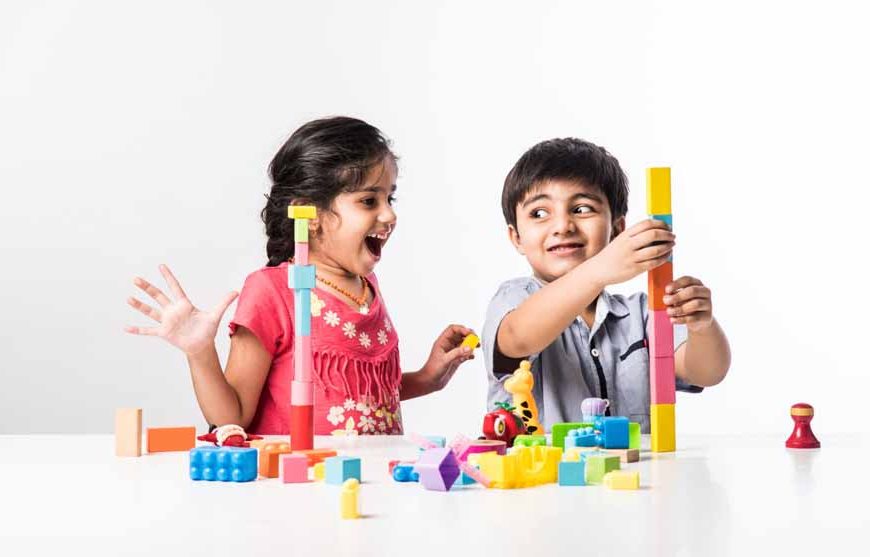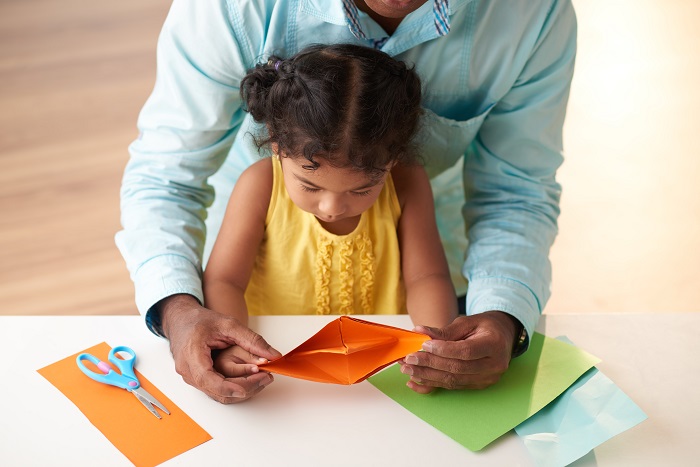In the dynamic landscape of today’s world, where technological advances and the swift pace of modern living dominate, the pivotal role of unstructured play in shaping children’s development becomes increasingly apparent. Unstructured play, often termed free play, emerges as a haven of simplicity and creativity amid the complexities of contemporary society. Within this sphere, children engage in spontaneous, imaginative, and self-directed activities unbound by strict rules or adult guidance. It is a realm of autonomy where children mould their own experiences, sowing the seeds for holistic growth across physical, cognitive, emotional, and social domains. This article delves into the intricate tapestry of significance woven by unstructured play, unravelling its role as a cornerstone in nurturing a resilient, well-rounded future for the rising generation.
Physical Development:
The beneficial effects of unstructured play on children’s physical development are among its main advantages. Children play freely when they can move around and do different physical activities, including running, leaping, climbing, and exploring. These activities help develop their gross motor skills, enhance coordination, and promote overall physical fitness.
When children engage in unstructured play, they are not limited by specific rules or structures. This freedom allows them to experiment with different movements, challenging their bodies in unique ways. Climbing trees, playing tag, or participating in impromptu sports games not only contribute to the development of strength and agility but also foster a sense of balance and spatial awareness.
In addition to gross motor skills, unstructured play supports the development of fine motor skills. Activities like drawing, building with blocks, or manipulating objects in a sandbox require precise hand-eye coordination and manipulation, laying the groundwork for later academic and daily life tasks.
Cognitive Development:
Unstructured play assumes a crucial role in augmenting the cognitive development of children. Within the realm of free play, children participate in activities that invigorate their creativity, problem-solving aptitude, and imagination. Granting children the liberty to make choices and independently tackle problems instills in them a sense of autonomy and confidence in their capabilities.
Engaging in imaginative play, whether through make-believe scenarios or creating intricate narratives with toys, aids in the cultivation of narrative skills and the nurturing of creativity. These activities not only activate the brain but also foster the refinement of language skills as children articulate their thoughts and ideas within the framework of their play.
Furthermore, unstructured play often involves negotiating with peers, sharing resources, and resolving conflicts independently. These social interactions provide valuable opportunities for cognitive growth as children learn to understand different perspectives, communicate effectively, and navigate social dynamics.
Emotional Development:
The overall well-being of a child hinges significantly on emotional development, and unstructured play plays a pivotal role in shaping this crucial aspect. Throughout unstructured play, children experience a spectrum of emotions, spanning from joy and enthusiasm to disappointment and anger. These varied emotional experiences present opportunities for children to acquire skills in emotional regulation, tackle challenges, and foster resilience.
Furthermore, unstructured play provides a platform for children to freely explore and express their emotions. Whether engaged in dramatic play, artistic activities, or storytelling, children can navigate and comprehend their feelings within a safe and supportive environment. This avenue for self-expression nurtures emotional intelligence and facilitates a deeper understanding of oneself and others.
Additionally, unstructured play actively fosters the development of social-emotional abilities, including collaboration, empathy, and teamwork. Through cooperative play activities, kids get a deep feeling of group belonging, learn how to read nonverbal clues and manage complex social interactions.
Social Development:
Unstructured play serves as a natural setting for children to develop crucial social skills that are fundamental for successful interactions in various contexts. As children engage in spontaneous play activities, they learn to negotiate, share, take turns, and resolve conflicts. These social interactions are essential for building positive relationships with peers and adults.
Within unstructured play environments, children frequently devise their own rules and guidelines, nurturing a sense of community and cooperation. These collective experiences play a key role in shaping a child’s social identity and lay the groundwork for establishing robust and positive relationships throughout their lifetime.
Furthermore, unstructured play allows children to practice communication skills in a relaxed and enjoyable setting. Whether they are collaborating on building a fort or engaging in imaginative play, children develop verbal and non-verbal communication skills that are essential for effective interpersonal relationships.
Reducing Stress and Anxiety:
In our increasingly structured and scheduled world, children are often exposed to academic and extracurricular pressures from a young age. Unstructured play provides a vital counterbalance to these stresses by offering children a break from the demands of structured activities. Engaging in playtime provides a release for stress and anxiety, offering children a space to relax, unwind, and recharge their mental and emotional well-being
According to many research studies, unstructured play activates the brain’s reward system and releases endorphins, which improve happiness and overall well-being. The inherent capacity of children to naturally alleviate stress is crucial for upholding a steady mental and emotional equilibrium and cultivating resilience when confronted with life’s challenges.
Moreover, unstructured play helps children develop effective coping mechanisms. As they navigate the ups and downs of play interactions, children learn to manage disappointment, frustration, and conflicts, developing a sense of emotional resilience that serves them well in various life situations.
Encouraging Independence and Initiative:
Unstructured play serves as a catalyst for empowering children, enabling them to take initiative and cultivate a sense of independence. When engaged in free play, children assume the responsibility of inventing their own games, establishing rules, and making decisions without continuous adult direction. This autonomy nurtures a heightened sense of responsibility and self-reliance.
Within the realm of unstructured play, children acquire the skills to take risks, make choices, and independently solve problems. These experiences play a pivotal role in shaping a growth mindset, wherein children come to recognize that challenges are valuable opportunities for learning and personal development. This mindset becomes a valuable asset as children face academic challenges, navigate social relationships, and pursue lifelong learning.
Additionally, unstructured play encourages curiosity and a natural inclination for exploration. Children are naturally curious beings, and unstructured play provides the space for them to follow their interests, ask questions, and seek answers. This curiosity-driven exploration lays the foundation for a lifelong love of learning and a proactive approach to seeking knowledge.
In wrapping up our exploration of the profound impact of unstructured play on children’s development, we are reminded that simplicity holds the key to fostering a thriving future generation. It is impossible to overestimate the lasting benefits of unstructured play in a society where technology and structure are defining us more and more. It is an investment in the resilience, curiosity, and flexibility that children carry into adulthood in addition to their immediate well-being.
Acknowledging the transformative influence of unstructured play, it becomes a shared duty for parents, educators, and society on a broader scale to foster environments that prioritize its significance. Collaboration among schools, communities, and families is imperative to furnish the necessary time, space, and resources for the flourishing of unstructured play. This collective effort extends beyond merely advocating for a departure from routine; instead, it involves nurturing a culture that reveres the intrinsic creativity, inquisitiveness, and social aptitude of each child. In essence, as we champion the cause of unstructured play, we are not merely advocating for a return to simplicity; rather, we are laying the groundwork for a generation that seamlessly navigates the complexities of life with resilience, joy, and a lifelong love of learning.
For more such interesting blogs, Visit EuroKids
















